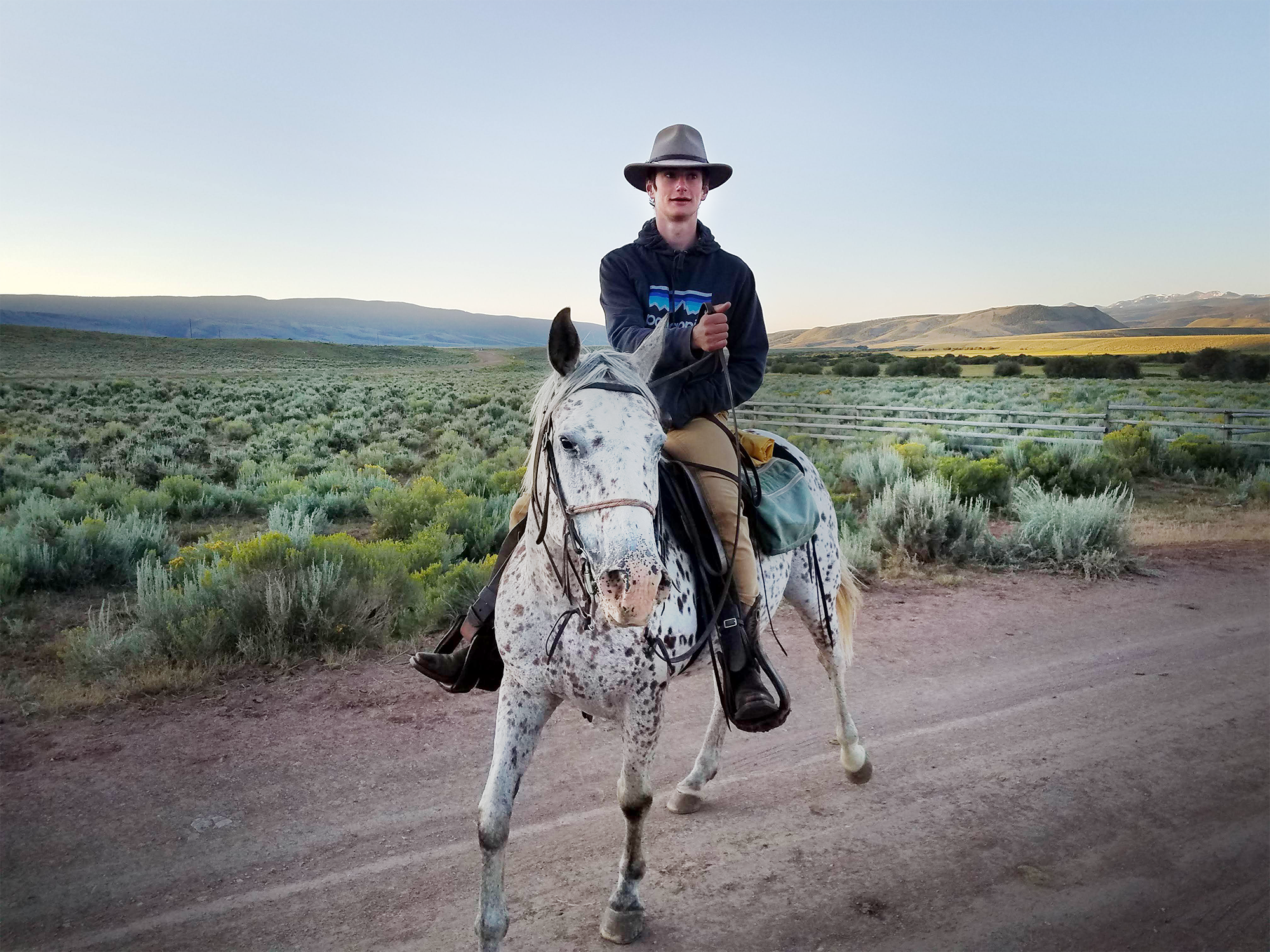VICE Features At Once in My Life With: Depersonalization/Derealization
Below is an Op-Ed I wrote addressing what has happened since the production of this video and how important it is to the story.
On May 13, 2022, two days before this video’s originally scheduled release date, my younger brother succumbed to his lifelong battle against treatment-resistant mental illness and took his own life. Greg Hoffer was a creative soul, nature whisperer, brave adventurer, excellent listener, and quirky goofball who held his loved ones tightly with the best and longest hugs. He was a beautiful person who didn’t deserve the pain he was burdened with in this life, and he left a massive, unfillable hole in his wake.
My brother was still alive when this video was made, and I was afraid that if I shared how his trauma was intertwined with my own, he would take on blame that wasn’t his to carry—something his depression often led him to do. However, the situation no longer provokes the fear that his life could hinge on my words. Now, even though the video has already been made, I feel it is important to illuminate the bigger picture. My brother’s death marks the pinnacle of my entire family’s biggest fear for the last eighteen years. We spent those years actively worrying about this happening. He spent those years suffering and feeling like a lost cause because he never received an adequate diagnosis or treatment. We believe Greg may have suffered from the effects of PANS/PANDAS, which is severe mental illness-inducing brain inflammation resulting from pediatric viruses like strep and coxsackie. Like dissociation, PANS/PANDAS is incredibly under-researched and under-discussed in both the medical and public arenas, and is therefore difficult to diagnose and treat properly. For my family, the result of this reality was long term, chaotic, and unpredictable circumstances every day for almost two decades, and it affected everyone differently. The common underpinning of all of our experiences was a feeling of helplessness—of not having any control over the situation. The way my body and mind chose to protect me from this was through dissociation—Depersonalization/Derealization, specifically. Checking out (or zooming out, which better describes how my body felt) was what helped me get by and live other aspects of my life “normally”. Dissociation fragmented my experience of myself, my life, and the world around me.
I want to emphasize that dissociation can arise when you need to contort your reality in order to function in long-term chaotic circumstances. At the age of fourteen, my fragmented sense of existence and literal sensations of living in a dream or from behind a glass wall were technically my coping mechanisms—but they created a whole other traumatic experience for me. I had no idea what was happening, and when I explained it to my parents, they didn’t know how to help me; when I explained it to a psychiatrist, it even took her a while to name what might have been happening: Depersonalization/Derealization. I went on to talk to that doctor and then to another therapist later in high school, but they didn’t have much to offer in a way that could reach me in my dissociation. I don’t believe they knew enough to be able to, and I had to just learn how to cope through trial and error.
Mental illness is so minimally understood. The term itself is so generalized in its use to refer to any ailment of the psyche—it’s not like we usually say someone is suffering from “physical illness” when a person has cancer or diabetes. We have a far greater understanding of (and lexicon for) the myriad different things that can affect the body. But for the mind? We see some representations of different mental health experiences in research and in the media, but not nearly enough to reflect the infinite intersections and manifestations that exist. Both my brother and I grew up experiencing mental illnesses that manifested in ways doctors and therapists didn’t really know how to treat, because there was not and is not enough research or tools to navigate them. Current research on DP/DR says that only 2-3% of the population experiences it, but that research is limited and in no way covers the full degree to which people experience it. We need a more integrated, dynamic approach to mental and physical health research entirely— especially in the wake of the pandemic, in a world where Black people, POC, disabled, and low-income people are disproportionately affected.
There are standard ideas of what success looks like in this world; Greg did not feel like he could meet those expectations with his neuro-disposition. That was a crushing weight, especially because alternative paths to success are not made clearly visible to those who think differently than the “norm” and who exist at different intersectional identities. In a perfect world, I see healthcare being driven not by the pharmaceutical industry, but by question-asking, better listening, trusting the patient, and more integrated knowledge across the physical and mental health realms. Most of all, the world I hope for is one that I know Greg wished was real when he was still walking the earth: one where mental illness is not a taboo subject, and where those whose minds diverge from the “neurotypical” norm have space to exist as they are without judgement. It’s a tragedy that my brother couldn’t live to see it, but all I can hope for is that we can make this world inclusive enough for all those who are still here to see a place for themselves in it.
~

